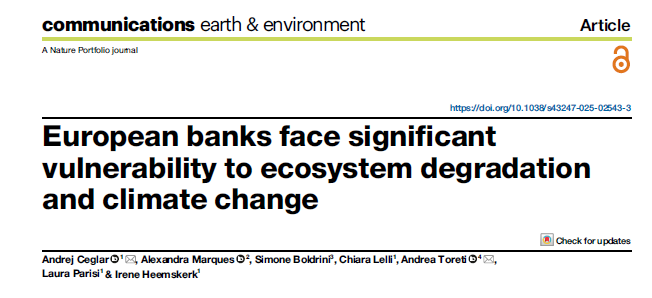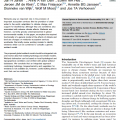European banks face significant vulnerability to ecosystem degradation and climate change
The relationship between nature and the economy is undeniable. Most economic activities have negative impacts on biodiversity, yet all economic activity is inherently dependent on nature.
In our new study we demonstrate how the economy and banks in the euro area are critically dependent on ecosystem services and how they simultaneously contribute to biodiversity loss through their biodiversity footprint. In our sample, 72% of the analysed companies in the euro area exhibit a high dependency on at least one ecosystem service. Out of the 2500 banks analyzed, 100 are responsible, through their loans to companies, for 87% of the total biodiversity footprint of the euro area banking system. Degradation of ecosystems and biodiversity loss can pose risks to the financial system by affecting companies’ production processes and, consequently, impairing their ability to repay debt. Such nature-related risks can be exacerbated by climate change. Our analysis reveals that nearly 60% of loans in the euro area are exposed to companies facing unmet flood protection needs, highlighting the compound financial risks from multiple, interacting ecosystem and climate hazards.
In this study, GLOBIO was used together with an input-output model to assess the biodiversity footprint of the euro area economy and banks.

Authors: Andrej Ceglar, Alexandra Marques, Simone Boldrini, Chiara Lelli, Andrea Toreti, Laura Parisi and Irene Heemskerk




